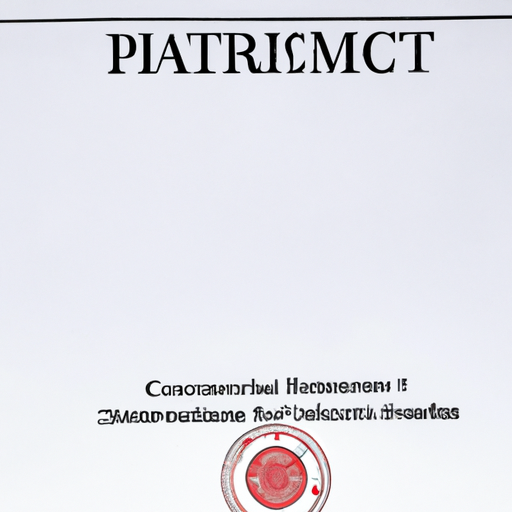If you find yourself facing the complex and often overwhelming process of adoption in West Point, Utah, you may be searching for an experienced adoption lawyer who can guide you through every step of the way. Look no further. In this article, we will address your common legal concerns, provide reassurance and guidance, and share important information to ensure you feel confident in your decision and understand the process ahead. From understanding the legal requirements to navigating potential challenges, we are here to help. So, read on to discover the ins and outs of adoption in West Point, Utah, and feel free to reach out to us for a consultation to discuss your specific needs.
What is Adoption Law?
Definition of Adoption Law
Adoption law refers to the set of legal rules and regulations that govern the process of adopting a child. This area of law encompasses various aspects, including the rights and responsibilities of adoptive parents and birth parents, the adoption process, and post-adoption legalities.
Purpose of Adoption Law
The primary purpose of adoption law is to protect the best interests of the child and ensure a smooth and ethical adoption process. It aims to provide a legal framework for adoptive parents and birth parents to establish a secure and loving environment for the child. Adoption law also aims to safeguard the rights and welfare of all parties involved, while promoting stability and permanency for the child.
Types of Adoption
Adoption can take various forms, depending on the specific circumstances and relationships involved. Some common types of adoption include:
- Domestic Adoption: This occurs when a child is adopted within the same country as the adoptive parents.
- Stepparent Adoption: This occurs when a stepparent legally adopts their spouse’s child.
- Relative Adoption: This occurs when a family member, such as a grandparent or aunt, adopts a child.
- Foster Care Adoption: This occurs when a child in the foster care system becomes legally available for adoption.
- International Adoption: This occurs when a child is adopted from another country.
- Adult Adoption: This occurs when an adult is legally adopted by another adult, often for inheritance or legal purposes.
Each type of adoption has its own unique set of procedures and requirements, which an adoption lawyer can guide you through.
Rights and Responsibilities of Adoptive Parents
Adoptive parents have both rights and responsibilities when it comes to the adoption process. Some of the key rights of adoptive parents include:
- The right to provide a loving and nurturing environment for the adopted child.
- The right to make decisions about the child’s education, healthcare, and general welfare.
- The right to establish a legal parent-child relationship with the adopted child.
At the same time, adoptive parents also have responsibilities, such as:
- Meeting the financial needs of the adopted child.
- Providing emotional support and guidance to the child.
- Upholding any legal obligations and requirements associated with the adoption.
An adoption lawyer can help adoptive parents understand their rights and responsibilities, ensuring they fulfill their role as parents legally and ethically.
Rights and Responsibilities of Birth Parents
Birth parents also have rights and responsibilities in the adoption process. While each situation may vary, some general rights and responsibilities of birth parents include:
- The right to make decisions about the child’s adoption, including choosing an adoptive family.
- The right to consent to the adoption and terminate their parental rights.
- The right to receive counseling and support throughout the process.
Birth parents also have the responsibility to act in the best interests of the child, considering their long-term well-being and stability. An adoption lawyer can help birth parents understand their rights and navigate the legal aspects of the adoption process.
Why Hire an Adoption Lawyer?
Importance of Legal Representation
When it comes to adoption, having legal representation is crucial. An adoption lawyer is well-versed in adoption laws and procedures, ensuring that all legal requirements are met throughout the process. They provide valuable guidance and support, protecting your interests and rights at every stage.
Navigating Complex Adoption Laws
Adoption laws can be complex and vary significantly depending on the jurisdiction and type of adoption. An adoption lawyer has in-depth knowledge and experience in navigating these laws, making sure you understand the legal implications and requirements specific to your situation.
Ensuring Compliance
Adoption laws have strict regulations and procedures that must be followed to ensure a legally sound adoption. An adoption lawyer helps you comply with these requirements, reducing the risk of delays, complications, or even legal challenges down the line.
Protecting Your Interests
Adoption can be an emotional and life-changing journey. An adoption lawyer acts as your advocate, protecting your interests and ensuring your needs and wishes are considered. They work to negotiate and draft legal agreements that reflect your desires, ensuring a fair and equitable adoption process.
Streamlining the Adoption Process
Adoption can be a lengthy and paperwork-intensive process. An adoption lawyer helps streamline the process by managing the necessary paperwork, coordinating with agencies, and ensuring all legalities are addressed promptly. This allows you to focus on the emotional aspects of the adoption while knowing that the legal side is being handled efficiently.
Choosing the Right Adoption Lawyer
Qualities to Look for in an Adoption Lawyer
When choosing an adoption lawyer, there are several qualities to consider. These qualities can ensure a positive experience and a successful adoption process. Some qualities to look for include:
Experience and Expertise
It’s essential to choose an adoption lawyer with significant experience and expertise in adoption law. Look for a lawyer who has successfully handled numerous adoption cases and is knowledgeable about the specific laws and procedures in your jurisdiction.
Effective Communication
Good communication is crucial throughout the adoption process. Choose a lawyer who listens to your concerns, explains legal concepts clearly, and keeps you updated on the progress of your case. Effective communication helps build trust and ensures all parties involved are on the same page.
Understanding and Compassion
Adopting a child is an emotional journey, and having a compassionate and understanding adoption lawyer can make a significant difference. Look for a lawyer who demonstrates empathy, who genuinely cares about your well-being and the best interests of the child.
Positive Reputation
Research the reputation of the adoption lawyer you are considering. Look for testimonials or reviews from previous clients, and consider reaching out to ask for references. A lawyer with a positive reputation indicates their professionalism and dedication to their clients.
Choosing the right adoption lawyer is a crucial step in ensuring a smooth and successful adoption process. Take the time to research and interview multiple lawyers to find the one who is the best fit for you and your specific adoption needs.
The Adoption Process
Overview of the Adoption Process
The adoption process involves several steps, each designed to ensure that the best interests of the child are protected, and all legal requirements are met. While the process may vary depending on the type of adoption and jurisdiction, some common steps include:
Pre-Adoption Requirements and Home Study
Before starting the adoption process, adoptive parents typically need to meet certain requirements, such as age, marital status, and background checks. A home study is also conducted by a licensed social worker to assess the adoptive parents’ suitability to provide a safe and stable environment for the child.
Matching Process and Placement
Once the pre-adoption requirements are met, the matching process begins. This involves finding an adoptive family who matches the child’s needs and the adoptive parents’ preferences. Placement occurs when the child is officially matched with the adoptive family.
Consent and Termination of Parental Rights
In most adoptions, birth parents must provide consent to the adoption and undertake the legal process to terminate their parental rights. This step is essential to establish the adoptive parents’ legal rights and responsibilities.
Finalization of Adoption
The finalization of the adoption is the last step in the process. This typically occurs in court, where a judge will review the adoption and issue a final decree, legally establishing the adoptive parents as the child’s legal parents.
Each step of the adoption process has its own specific requirements, timelines, and legal implications. An adoption lawyer can guide you through each step, ensuring all legal procedures are followed correctly.
Adoption Laws in West Point, Utah
Overview of Adoption Laws in West Point
Adoption laws in West Point, Utah, are governed by state laws and regulations. It is essential to familiarize yourself with these laws to ensure compliance and a successful adoption. Some key aspects of adoption laws in West Point include:
Regulations and Requirements
West Point has regulations and requirements for adoptive parents, including age restrictions, background checks, and completion of a home study. These regulations aim to ensure a safe and stable environment for the child.
Timeframes and Procedures
West Point has specific timeframes and procedures that must be followed during the adoption process. These include deadlines for parental consent, notifications to birth parents, and court hearings. Adherence to these timeframes is crucial to avoid potential complications.
Contested Adoptions
In some cases, adoptions may be contested, meaning that one or more parties dispute the adoption. West Point adoption laws provide a legal framework for addressing contested adoptions, including the involvement of the court system to determine the best interests of the child.
Post-Adoption Legalities
Even after the adoption is finalized, there may be post-adoption legalities to address. This can include amending birth certificates, changing the child’s name, and ensuring compliance with any post-adoption requirements. An adoption lawyer familiar with West Point adoption laws can guide you through these post-adoption legalities.
Adoption for Different Scenarios
Adoption by Stepparent
Stepparent adoption is a common scenario where a stepparent legally adopts their spouse’s child. This type of adoption requires the consent of the non-custodial biological parent or the termination of their parental rights if they are not involved in the child’s life. An adoption lawyer can assist with the necessary legal steps to ensure a smooth and successful stepparent adoption process.
Relative Adoption
Relative adoption occurs when a family member, such as a grandparent, aunt, or uncle, adopts a child. This type of adoption often arises when the birth parents are unable to provide a safe and stable environment for the child. An adoption lawyer can help navigate the legal procedures and requirements specific to relative adoptions.
Foster Care Adoption
Foster care adoption involves adopting a child who is currently in the foster care system. This type of adoption can have unique challenges and requirements, including working with child welfare agencies and undergoing additional home studies and evaluations. An adoption lawyer experienced in foster care adoptions can guide you through this process.
International Adoption
International adoption refers to the adoption of a child from another country. This type of adoption involves complex legal procedures, immigration requirements, and cultural considerations. An adoption lawyer specializing in international adoptions can navigate the unique challenges and ensure compliance with both domestic and international laws.
Adult Adoption
Adult adoption is a legal process where one adult adopts another adult who is not their biological child. Adult adoptions can be for various reasons, such as establishing inheritance rights or formalizing existing parent-child relationships. An adoption lawyer can assist with the necessary legal steps to ensure a valid adult adoption.
Each type of adoption has its own specific legal requirements and procedures. An adoption lawyer can provide guidance and support, ensuring compliance with applicable laws in the chosen adoption scenario.
Adoption Expenses and Financial Considerations
Understanding Adoption Costs
Adoption can involve various expenses, and it is essential to have a clear understanding of the potential costs involved. Some common adoption costs include:
- Agency Fees: These are fees charged by adoption agencies for their services.
- Legal Fees: Adoption lawyers charge fees for their legal representation and assistance throughout the process.
- Home Study Fees: A licensed social worker conducts a home study, which incurs fees.
- Birth Parent Expenses: In some cases, adoptive parents may be responsible for certain birth parent expenses, such as medical costs or living expenses.
- Travel Expenses: International adoptions or adoptions that involve out-of-state travel may incur additional travel expenses.
- Post-Placement Supervision Fees: After placement, some adoptions require post-placement supervision by a social worker, which may incur fees.
Understanding the potential adoption costs can help adoptive parents budget and plan accordingly.
Financial Assistance and Grants
Adoptive parents may be eligible for various forms of financial assistance and grants to help offset adoption costs. These include adoption tax credits, employer-provided adoption benefits, and adoption subsidies for children with special needs. An adoption lawyer can provide guidance on the available financial assistance options and help adoptive parents explore potential grants and subsidies.
Tax Benefits and Credits
Adoption can qualify adoptive parents for certain tax benefits and credits. The Federal Adoption Tax Credit allows adoptive parents to offset their federal tax liability for qualified adoption expenses. Adoption lawyers can provide guidance on how to claim these tax benefits and ensure compliance with tax laws.
Adoption Subsidies
Adoption subsidies are financial assistance provided to adoptive parents who adopt children with special needs. These subsidies can assist with the ongoing care and support of the child, including medical expenses, therapy, and education. An adoption lawyer can help determine eligibility for adoption subsidies and guide adoptive parents through the application process.
Budgeting for Adoption
Adoption costs can vary significantly depending on the type of adoption and individual circumstances. It is essential for adoptive parents to budget and plan for these expenses in advance. An adoption lawyer can provide a realistic estimate of potential costs and help adoptive parents create a financial plan for their adoption journey.
Post-Adoption Legal Services
Name Change
After an adoption is finalized, adoptive parents may choose to change the adopted child’s name. This process typically involves filing a petition with the court and obtaining a court order for the name change. An adoption lawyer can assist with the necessary legal steps to change the child’s name legally.
Guardianship Issues
In some cases, adoptive parents may need to address guardianship issues, such as designating a guardian in their will or establishing a guardianship plan for the child’s future care. An adoption lawyer can provide guidance and draft legal documents to ensure the child’s protection and well-being.
Adoption Dissolution
Adoption dissolution refers to the legal process of terminating an adoption after it has been finalized. This is a complex and rare situation and typically occurs in extreme circumstances. If faced with the need for an adoption dissolution, it is essential to consult with an adoption lawyer who can navigate the legal process and protect your rights and the child’s best interests.
Birth Certificate Amendments
After an adoption is finalized, the child’s original birth certificate is typically amended to reflect the adoptive parents as the child’s parents. An adoption lawyer can guide you through the necessary steps to obtain a new birth certificate reflecting the adoptive parents’ information.
Post-Adoption Support
Even after the adoption is finalized, adoptive parents may need ongoing support and guidance. Adoption lawyers can provide resources and referrals to post-adoption support services, such as counseling, support groups, and educational programs. These services can help adoptive parents navigate any challenges or adjustments that may arise after the adoption.
Emotional and Psychological Support
Navigating Emotional Challenges
Adoption can be an emotional journey for all parties involved. Adoptive parents may experience feelings of excitement, anticipation, and even anxiety. Birth parents may also experience a range of emotions, including grief and loss. An adoption lawyer can provide emotional support or recommend resources to help navigate these emotional challenges.
Coping with Adoption-related Stress
The adoption process can be stressful, with various legal, logistical, and emotional factors to consider. Adoptive parents may experience stress and anxiety throughout the process. An adoption lawyer can offer guidance and strategies to cope with adoption-related stress, helping to alleviate some of the pressure.
Finding Support Groups
Support groups can be a valuable resource for adoptive parents and birth parents alike. These groups provide an opportunity to connect with others who have similar adoption experiences, share advice, and offer emotional support. An adoption lawyer can provide information and referrals to local support groups, both in-person and online.
Helping Children Adjust to Adoption
Adoption can be a significant adjustment for the adopted child. Adoptive parents may need guidance on how to support the child’s emotional well-being and help them navigate their identity and sense of belonging. An adoption lawyer can provide resources and information to assist adoptive parents in helping their child adjust to their new family dynamic.
Addressing Attachment and Bonding
Attachment and bonding are essential in the adoptive parent-child relationship. Adoptive parents may have concerns or questions about promoting healthy attachment and bonding with their adopted child. An adoption lawyer can provide guidance on attachment strategies and recommend resources to support bonding in the early stages of the adoption.
Frequently Asked Questions
What are the qualifications to adopt a child?
The qualifications to adopt a child vary depending on the type of adoption and jurisdiction. In general, adoptive parents must meet certain criteria, such as being of a certain age, completing a background check, and demonstrating the ability to provide a safe and stable home environment. An adoption lawyer can provide detailed information on the specific qualifications for adoption in your area.
How long does the adoption process take?
The length of the adoption process can vary significantly, depending on factors such as the type of adoption, the jurisdiction, and individual circumstances. Some adoptions can be completed in as little as a few months, while others may take several years. The adoption lawyer can give you a more accurate estimate of the expected timeline based on your specific circumstances.
What is an open adoption?
An open adoption is an adoption where the adopted child and the birth parents have ongoing contact and communication. This can range from occasional letters or emails to regular visits and ongoing relationships. Open adoptions can provide the adopted child with a sense of identity and connection to their birth family. The terms of an open adoption can be negotiated and agreed upon by all parties involved. An adoption lawyer can provide guidance on establishing an open adoption and navigating any legal considerations that may arise.
Note: This article contains information on adoption laws and procedures. It is important to consult with an adoption lawyer who is familiar with the specific laws and regulations in your jurisdiction to obtain accurate and up-to-date information for your individual situation.







































